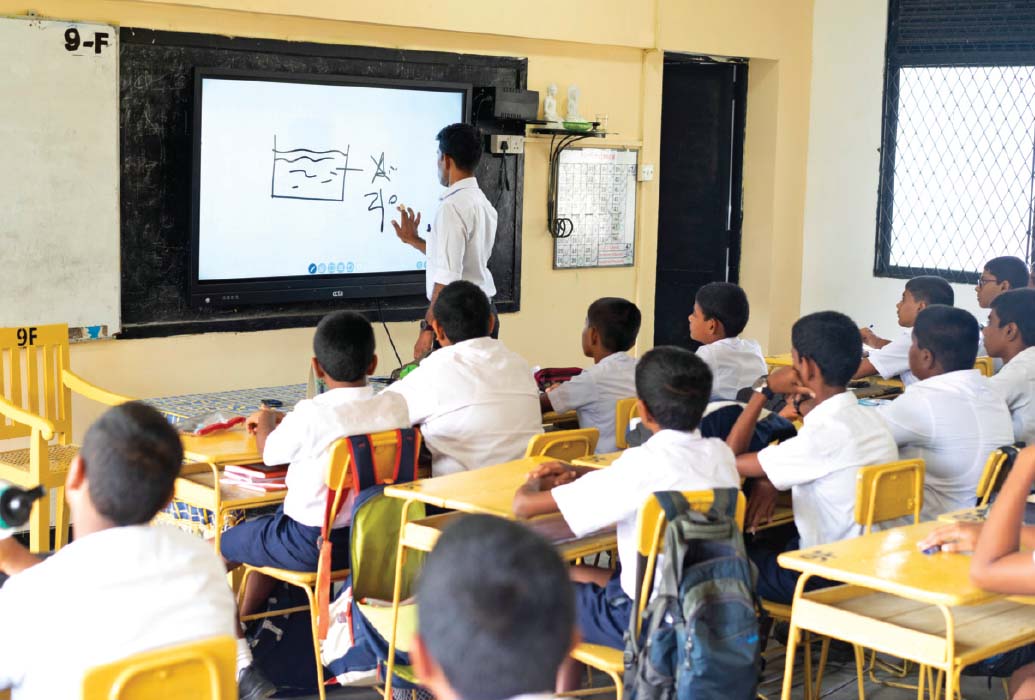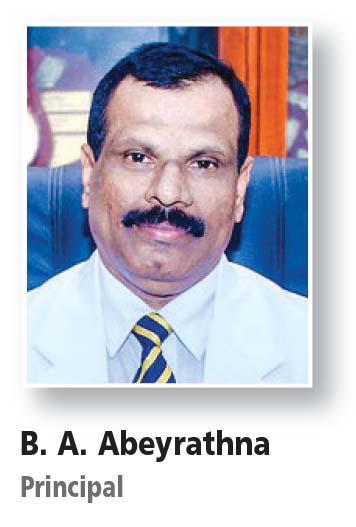ROYAL COLLEGE
The future of education
Q: Could you outline the history of your school?
A: Royal College, often referred to as the ‘Eton of Sri Lanka,’ was founded as a private school by Rev. Joseph Marsh in 1835 and established as the Colombo Academy by Sir Robert Wilmot-Horton the following year. It was the first government run secondary school for boys in the island.
The school was renamed ‘Royal College Colombo’ in 1881 with Queen Victoria’s consent, thereby becoming the first school outside the British Isles to gain the prefix ‘Royal.’ Moreover, Royal College was one of the first schools to be designated as a national school by the Sri Lankan government in the 1980s.
Q: How has the digital age impacted the education sector?
A: Digital transformation has made a profound impact across sectors. With regard to education, the advancement of technology has brought learning to our fingertips, thereby facilitating accessibility and convenience. It has improved both teaching and learning experiences, making them more effective and fun for teachers and students alike.
Digital learning in the classroom involves the effective use of digital assets and technology, and seeks to enhance the learning experience rather than replace traditional methods.
It encompasses classroom technology, e-textbooks, virtual reality and much more, helping students simultaneously hone their technical knowledge and skills.
Going beyond the walls of classrooms, on the go learning has become the norm where people imbibe knowledge and information through podcasts, online courses, blogs, videos, articles and social media channels to constantly
update themselves.
Q: What’s your take of smart technology education?
A: Smart technologies enable students to digest knowledge and skills more effectively, efficiently and conveniently.
It’s important to use technology in classrooms to ensure that teachers reach different types of learners – the visual, auditory and kinaesthetic learners – to achieve improved learning outcomes. Smart learning helps learners become proactive leaders rather than static followers of the educational process.
Q: So what steps have you taken to introduce technology to the school?
A: We’ve modernised computer labs and deployed smart interactive displays (smart boards) in classrooms, which will enable teachers to use modern techniques and content to better communicate abstract concepts to children. Therefore, they will have a solid foundation on which they can expand their capabilities in Advanced Level classes.
However, the main challenge has been in transforming the mindset of teachers to adapt to new ways of teaching. It’s a huge change to go beyond the blackboard, which they have used for years. Therefore, we strongly believe that the most important piece of the puzzle to achieve our smart learning objectives is to adequately train teachers and help them get on board this transformation.
Q: And finally, what is the future of education in Sri Lanka?
A: The only way that the country can develop is if more children receive a well-rounded education. Initiatives such as the ‘13 Years Guaranteed Education Programme’ launched by the Ministry of Education will be pivotal in shaping the future of education in Sri Lanka. It’s up to us to ensure this basic human right to all while keeping pace with digital transformation trends to reap the maximum benefit.






